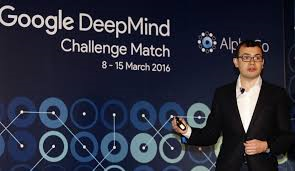
Breaking News
 Battleborn Batteries Responds! Their Overheating Device is a "Feature" not a "Problem
Battleborn Batteries Responds! Their Overheating Device is a "Feature" not a "Problem
 Actor Liam Neeson Outs Himself as MAHA After Narrating Pro-RFK Jr. Documentary Slamming...
Actor Liam Neeson Outs Himself as MAHA After Narrating Pro-RFK Jr. Documentary Slamming...
 Kyle Rittenhouse announced on social media Wednesday that he has tied the knot.
Kyle Rittenhouse announced on social media Wednesday that he has tied the knot.
 JUST IN: President Trump Grants Tina Peters Pardon
JUST IN: President Trump Grants Tina Peters Pardon
Top Tech News
 Build a Greenhouse HEATER that Lasts 10-15 DAYS!
Build a Greenhouse HEATER that Lasts 10-15 DAYS!
 Look at the genius idea he came up with using this tank that nobody wanted
Look at the genius idea he came up with using this tank that nobody wanted
 Latest Comet 3I Atlas Anomolies Like the Impossible 600,000 Mile Long Sunward Tail
Latest Comet 3I Atlas Anomolies Like the Impossible 600,000 Mile Long Sunward Tail
 Tesla Just Opened Its Biggest Supercharger Station Ever--And It's Powered By Solar And Batteries
Tesla Just Opened Its Biggest Supercharger Station Ever--And It's Powered By Solar And Batteries
 Your body already knows how to regrow limbs. We just haven't figured out how to turn it on yet.
Your body already knows how to regrow limbs. We just haven't figured out how to turn it on yet.
 We've wiretapped the gut-brain hotline to decode signals driving disease
We've wiretapped the gut-brain hotline to decode signals driving disease
 3D-printable concrete alternative hardens in three days, not four weeks
3D-printable concrete alternative hardens in three days, not four weeks
 Could satellite-beaming planes and airships make SpaceX's Starlink obsolete?
Could satellite-beaming planes and airships make SpaceX's Starlink obsolete?
Google's AI Wins First Game in Historic Match With Go Champion

Known as AlphaGo, this Google creation not only proved it can compete with the game's best, but also showed off its remarkable ability to learn the game on its own.
A group of Google researchers spent the last two years building AlphaGo at an AI lab in London called DeepMind. Until recently, experts assumed that another ten years would pass before a machine could beat one of the top human players at Go, a game that is exponentially more complex than chess and requires, at least among the top humans, a certain degree of intuition. But DeepMind accelerated the progress of computer Go using two complimentary forms of machine learning—techniques that allow machines to learn certain tasks by analyzing vast amounts of digital data and, in essence, practicing these tasks on their own.

 First totally synthetic human brain model has been realized
First totally synthetic human brain model has been realized Mach-23 potato gun to shoot satellites into space
Mach-23 potato gun to shoot satellites into space

